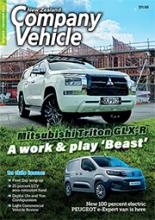It seems the world of leasing changes like the weather, or perhaps more accurately, like the seasons as it takes a certain amount of time for lease companies to develop new products and stay abreast of trends within the industry.
And, given what we have seen over the past few months – I would say years, but the last few months have seen even more chaos and disruption – the lease companies have been remarkably agile and adaptive.
It’s fair to say they have worked hard for their money and for their customers / clients, which emphasises the point that lease companies are a lot like modern travel agents.
When everything is going swimmingly, anyone can go online to make travel arrangements through any number of organisations including the destinations and tour operators themselves.
When things turn to custard, tourism operators tend to not be overly useful because a panicky traveller usually finds it difficult to adapt plans with a minimum of fuss and generally makes life even more difficult.
Same sort of thing with lease companies.
When the economy is fine, supply chains are uninterrupted and things are running normally, the lease company – doing the right thing by staying close to the customers – can become something of a nuisance in the eyes of the businesses they serve as they try to make improvements or try to anticipate future requirements.
But when global crises impact negatively on local industry – rising fuel costs through instability, factory shutdowns due to pandemics, silicone shortages due to fickle customers, all of which have happened recently – it’s the lease companies phones which suddenly run red hot with customers demanding assistance.
So, what’s the takeaway from this?
We live in tumultuous times where unpredictability is the norm.
When you consider a healthy and profitable business operates at its best when peaks and troughs are smoothed out – having a reputable lease company on hand to iron out the wrinkles is a smart decision to make.
According to figures obtained from the new car industry, leasing direct from a manufacturer has fallen to under 30 percent.
Why would this be the case? There could be any number of reasons: the fact that auto distributors are scrambling to find product they can sell, that they are challenged with larger issues surrounding emissions, carbon taxes and of course, having to remodel their conventional business practices.
Added to which, leasing is not a core business function of an auto distributor or come to that, the core function of a dealership.
Leasing from lease companies, however, seems to be trending upwards, suggesting two things, the first of course, being that a lease company’s day-to-day business is leasing – they are not distracted by non-core activities.
Secondly, it would seem small to medium business owners with a diverse number of vehicles – largely because of the turbulent times – are considering leasing as a sensible and practical solution and are thus turning to lease companies which, as professional partners, are able to effect positive results in the short, medium and long term.






